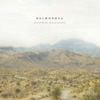 Austin, Texas's Balmorhea have garnered a quite a bit of well-deserved praise for their earlier work (Pitchfork managed to inexplicably compare their previous album to both Keith Jarrett and Arvo Part), but that did not deter them from making some very substantial changes to their sound. All Is Wild, All Is Silent is the folky chamber music sextet's first recording with a drummer and stand-up bassist. Notably, it sounds absolutely nothing like Arvo Part. I'm afraid something has gone dreadfully wrong somewhere.
Austin, Texas's Balmorhea have garnered a quite a bit of well-deserved praise for their earlier work (Pitchfork managed to inexplicably compare their previous album to both Keith Jarrett and Arvo Part), but that did not deter them from making some very substantial changes to their sound. All Is Wild, All Is Silent is the folky chamber music sextet's first recording with a drummer and stand-up bassist. Notably, it sounds absolutely nothing like Arvo Part. I'm afraid something has gone dreadfully wrong somewhere.
All Is Wild, All Is Silent borrows its title from William B. Dewees' Letters From An Early Settler Of Texas To A Friend and the music is certainly appropriate to that theme ("the album swells with images of an untamed land... and faith in the face of an unknown and savage Nature."). In simpler terms, this album is...ahem..."cinematic." Somewhat bombastically so, in fact. Of course, Balmorhea are often extremely good at what they do (the plucked violins, stark piano, and shimmering electric guitar in "Harm and Boon" are quite striking, for example), so I can't easily dismiss them. Of course, I cannot embrace it either, as their newfound maximalism clashes uncomfortably with their earlier minimalism. Balmorhea are at their best when they are simple, uncluttered, and languid (as on 2008's excellent Rivers Arms). This new line-up adds quite a bit of heft, but is a bit too song-y and liberal with crescendos and sweeping grandeur for my taste. The world already has one Calexico.
The opening track ("Settler") begins with a vaguely pretty and simple piano part and manages to prematurely explode into soaring epic mode when the strings come in after a mere twenty seconds or so. There is also a vexingly unsubtle chorus of sorts that makes me want to bang my head into the wall every time it crassly blunders in. This stylistic mishap is rendered still more distressing by the fact that "Settler" becomes quite beautiful after the midpoint, when a shimmering piano gives way to a stripped-down and melancholy interlude of acoustic guitar, mournful violin, and laconic wordless vocals. I even like the stomping outro, which ingeniously enhances the song's earlier, somewhat uninteresting themes with an exuberant Latin clapping rhythm.
"Coahuila" is one of the album's few unqualified successful songs. it contains all the usual elements of the new and brawnier Balmorhea (poignant violins, simple acoustic arpeggios, distant reverbed vocals, an intense crescendo, etc.), but is unique here for unfolding in a patient, unforced manner. Unearned climaxes and misplaced intensity are probably this album's biggest pitfalls. "Truth" also succeeds for the same reason and ends with some beautiful unaccompanied piano. Unfortunately, while some tracks stand out from the others, nothing particularly floored me. There are a lot of inspired moments on this album, but no songs that have sustained brilliance. It's all just merely pleasant and inoffensive.
I am hoping that this is a transitional album and that future efforts more seamlessly integrate Balmorhea's newfound muscularity. They are a fairly unusual and often excellent band and I heartily recommend checking out their earlier efforts, but this is a bit of a mis-step. Of course, in Balmorhea's defense, All Is Wild, All Is Silent would make an excellent accompanying score to a somewhat highbrow western. Notably, however, that film does not exist, and I feel puzzled and foolish listening to musical evocations of heroic cowboys and wagon trains in my apartment.
Samples:
Read More

